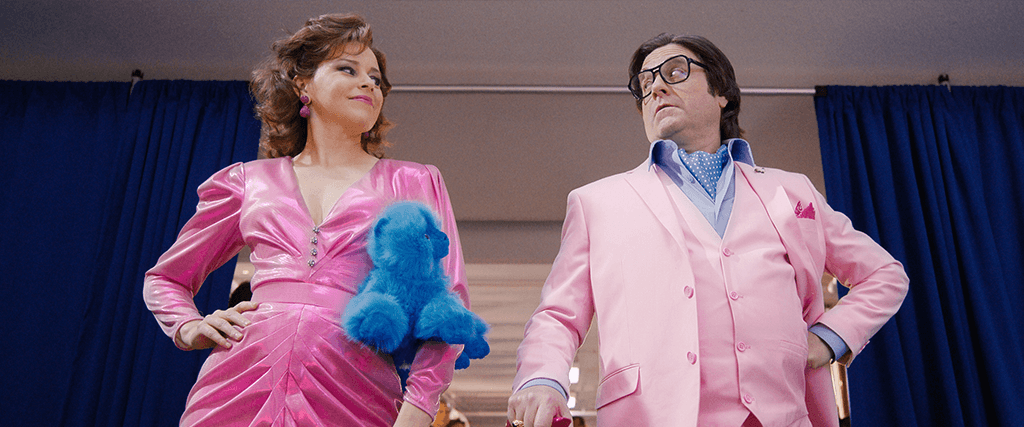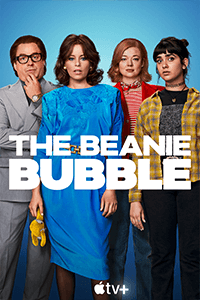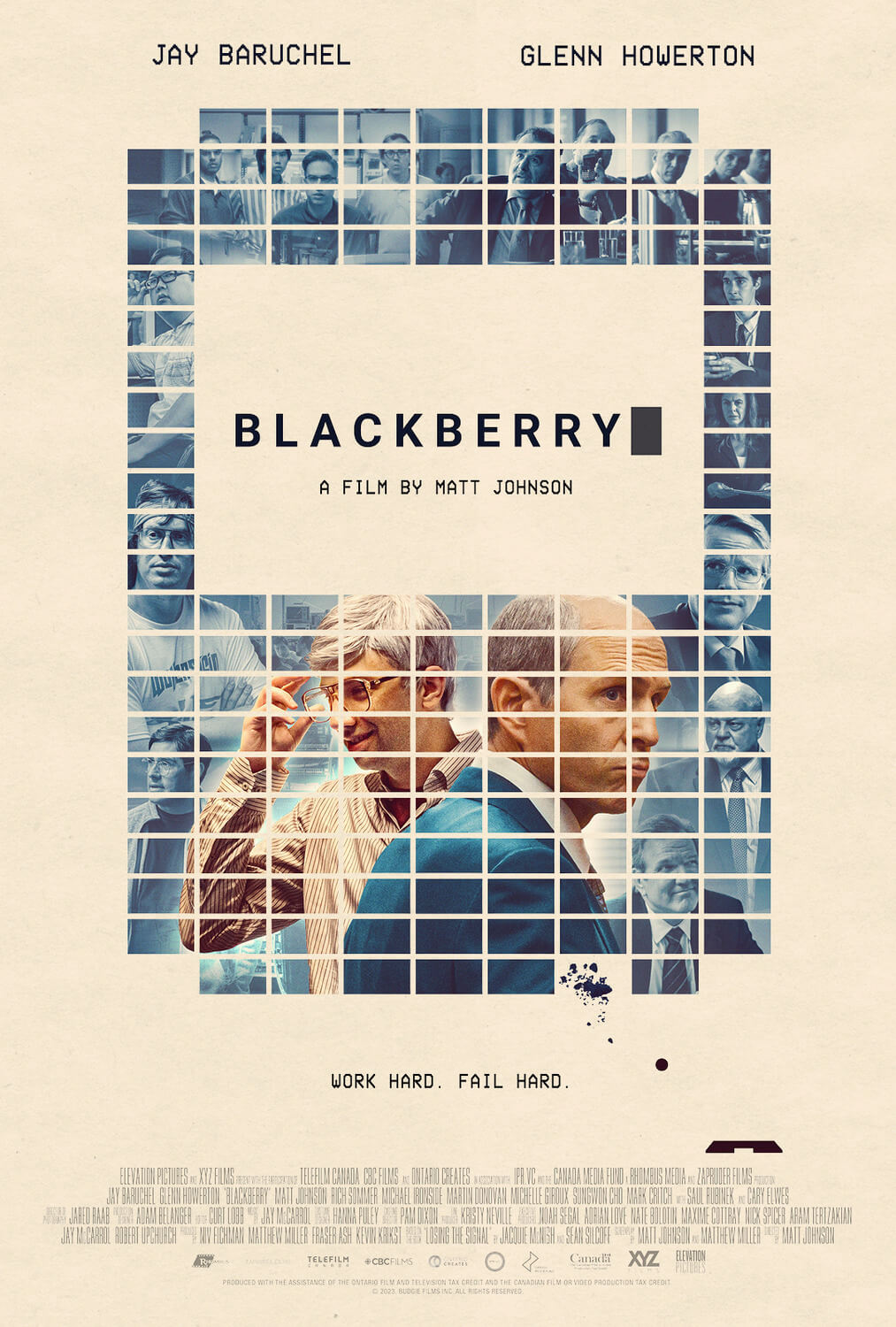
The Beanie Bubble
By Brian Eggert |
Economic bubbles occur when investors become so fanatical that demand rises beyond sustainable limits, causing the marketplace to correct itself by bursting. Bubbles range from the dot-com stock market in the late 1990s to Japan’s economy in the 1980s. Perhaps the most perfect example is Tulip Mania, which struck the Netherlands in the seventeenth century. With the arrival of tulips in Europe from the Ottoman Empire, the Dutch tulip market began charging increasingly exorbitant amounts for these rare flowers, with unique colors fetching the equivalent of a year’s salary in some cases—all for a commodity that would inevitably wilt and die. The Beanie Bubble tells the story of another fleeting economy that lasted a few years in the mid-1990s, concerning the bizarre secondary market of collectors who paid thousands for Ty, Inc.’s line of small stuffed animals, popularized by the newly formed online auction site eBay. But the movie’s half-hearted investment in its characters and its surface-level capitalistic critique tell a story that would have been better served by a documentary.
The Beanie Bubble is the latest in 2023’s curious string of brand biopics that play on our nostalgia for products, which either remain favorites or were short-lived oddities. In the former category are Air, about the launch of Air Jordans; Flamin’ Hot, a bogus origin story about the popular Cheeto flavor; and Tetris, a Cold War thriller about negotiating a video game from behind the Iron Curtain. In the latter category of now-defunct products, there are BlackBerry, a tale of hubris concerning one of the first smartphones, and then also The Beanie Bubble. Although I suspect the entire brand biopic movement might derive from the popularity of two Netflix series, The Toys That Made Us and The Movies That Made Us, they signal a trite pattern of making movies about products first, people second. Occasionally, a brand biopic will feature strong characterizations, but more often than not, it’s about product-as-protagonist, and the humans onscreen seem secondary to the brands they develop.
Screenwriter Kristin Gore based her screenplay on Zac Bissonnette’s 2015 book The Great Beanie Baby Bubble: Mass Delusion and the Dark Side of Cute. Gore also directs alongside Damian Kulash, making the film attributed to a husband-and-wife team comprised of the daughter of a former Vice President and the frontman of OK Go. Setting that aside, the film opens with the glib announcement, “There are parts of the truth you can’t make up. The rest we did.” But in its account, The Beanie Bubble seems divided between two purposes: 1) using Beanie Babies to facilitate a critique of capitalism at its most superficial, and 2) telling a story about three women who learned self-reliance the hard way, after ridding themselves of a toxic male boss and partner. The film does neither very well, though it’s easy to see the appeal of this story for everyone involved.
 Gore constructs the narrative around three women who boosted the Ty, Inc. brand, founded in 1986, but have been written out of history thanks to the enormous, fragile ego of Ty Warner (Zach Galifianakis, almost unrecognizable without his signature beard). The film leaps back and forth amid three periods, starting in 1983 when Ty and his neighbor Robbie (Elizabeth Banks) use the inheritance from his late father’s death to launch a toy company. Then, in 1993, Maya (Geraldine Viswanathan, from TV’s hilarious Miracle Workers) begins her role as a receptionist at the company, where she writes the poems that accompany each beanie, launches one of the first company websites, and tracks the frenzied collector market on eBay. Around the same time, Ty breaks things off with Robbie and begins a relationship with Sheila (Sarah Snook), who’s wary of any romantic tie because her last marriage ended badly, and she wants to protect her two young daughters. Inevitably, each of these women realizes that she’s carrying Ty, an infantile narcissist and boss from hell who takes credit for others’ ideas and work.
Gore constructs the narrative around three women who boosted the Ty, Inc. brand, founded in 1986, but have been written out of history thanks to the enormous, fragile ego of Ty Warner (Zach Galifianakis, almost unrecognizable without his signature beard). The film leaps back and forth amid three periods, starting in 1983 when Ty and his neighbor Robbie (Elizabeth Banks) use the inheritance from his late father’s death to launch a toy company. Then, in 1993, Maya (Geraldine Viswanathan, from TV’s hilarious Miracle Workers) begins her role as a receptionist at the company, where she writes the poems that accompany each beanie, launches one of the first company websites, and tracks the frenzied collector market on eBay. Around the same time, Ty breaks things off with Robbie and begins a relationship with Sheila (Sarah Snook), who’s wary of any romantic tie because her last marriage ended badly, and she wants to protect her two young daughters. Inevitably, each of these women realizes that she’s carrying Ty, an infantile narcissist and boss from hell who takes credit for others’ ideas and work.
Gore’s script includes plenty of not-unfounded jabs at American capitalism, although the approach is heavy-handed, just like the dramaturgy. Ty serves as a personification of self-serving Americanism, wrapped in a particular brand of comic hypocrisy that claims his plush toys are “made by Americans, for Americans”—though Robbie reminds him that Asian factories manufacture Beanie Babies. He refuses to allow megastores like Wal-Mart to carry his products, vowing to support “mom and pop” shops instead. But he quickly makes a deal to include mini Beanie Babies in McDonald’s Happy Meals. The examples of Ty’s sanctimonious behavior build up with the three women until they each resolve to leave him. You might ask yourself why these women ever trust Ty, given the clear warning signs and peculiarities—from never giving Maya credit to unsubtly suggesting Sheila get a nose job. But Robbie’s narration observes that “the point” of America is “everybody’s chasing something too good to be true.”
Unfortunately, The Beanie Bubble telegraphs its meaning with dull narration from the three main characters, each of whom details the moral of the story in no uncertain terms. Rather than trust the audience to glean the lesson by immersing the viewer in the frustrating story of the three women who made Ty the success he was, Gore and Kulash overemphasize every point. This is a particular problem with today’s cinema and political messaging. Even if one agrees with what the film has to say about the patriarchy in business and American capitalism, its methods have all the subtlety of Maxwell Edison. What a shame, since the rise and fall of Ty, Inc. could have been a fascinating study of collector bubbles, just as the account of Ty Warner’s self-centered behavior remains a striking account of corporate psychopathy at its worst. Even so, the Apple TV+ original pays uneven attention to these strains, suggesting that the audience might be better served by reading Bissonnette’s book about the subject.

Thank You for Supporting Independent Film Criticism
If the work on DFR has added something meaningful to your love of movies, please consider supporting it.
Here are a few ways to show your support: make a one-time donation, join DFR’s Patreon for access to exclusive writing, or show your support in other ways.
Your contribution helps keep this site running independently. However you choose to support the site, please know that it’s appreciated.
Thank you for reading, and for making this work possible.
Brian Eggert | Critic, Founder
Deep Focus Review





